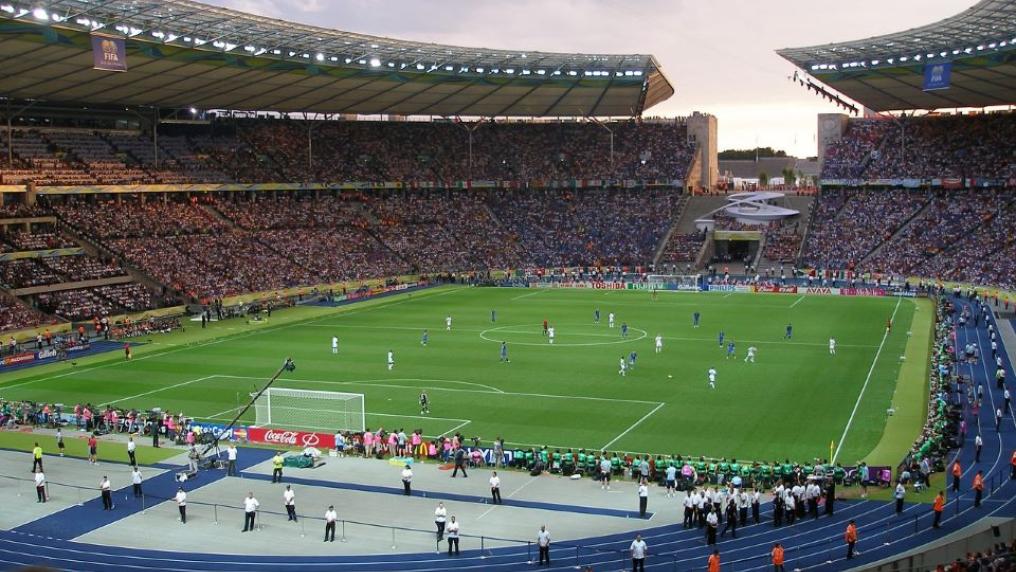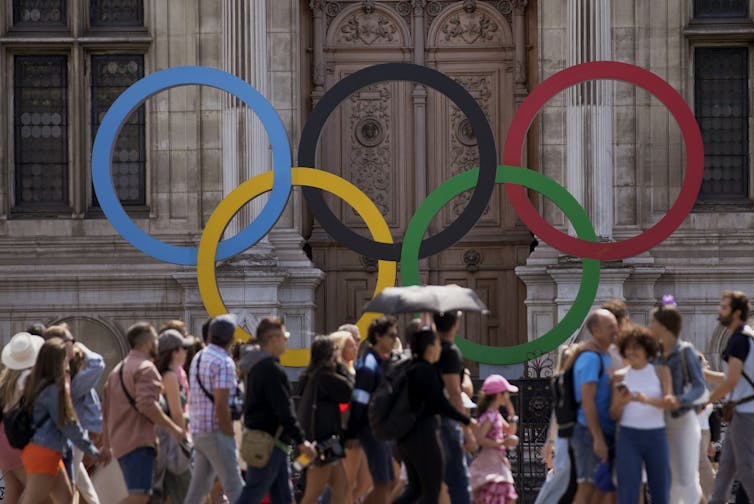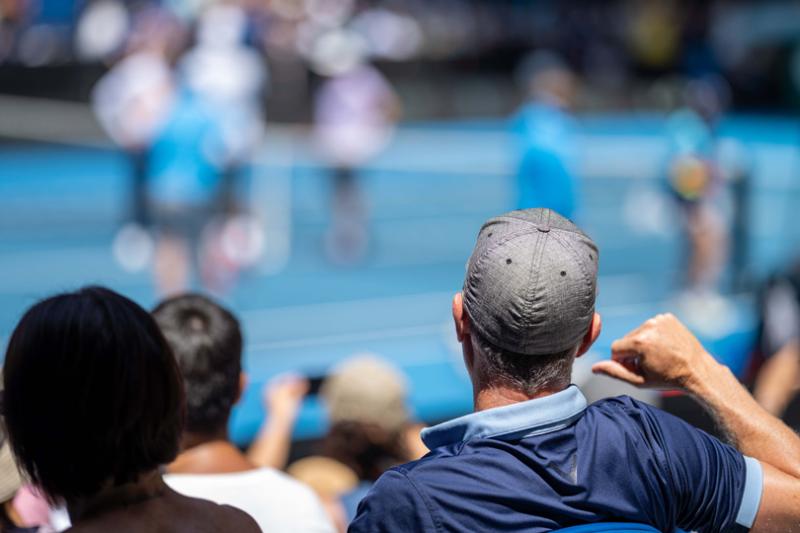One year to go: Will the Paris 2024 Olympics see a return to normalcy?

We haven’t had a “normal” Olympic Games since the 2018 Pyeongchang Winter Olympics. The 2020 Tokyo Summer Games and the 2022 Beijing Winter Games were both affected by the COVID-19 pandemic, resulting in significant changes and schedule disruptions.
There were virtually no spectators, strict COVID-19 protocols for anyone involved in the Games, budget issues, no corporate hospitality, reduced community engagement and a lackluster atmosphere in the two host cities.
But there is hope for a return to a more traditional and enjoyable Games with the upcoming 2024 Paris Olympics. With 10 million tickets available, spectators will be back in stadiums.
Up to 600,000 spectators will be allowed at the opening ceremony in July 2024 which, for the first time in history, won’t take place in a stadium, but along the Seine River in northern France. Athletes will parade six kilometres along the river before arriving at the Trocadéro, where the final parts of the ceremony will take place.
Athletes and sports
Since pandemic restrictions are no longer in place, competing at the Olympics and living in the Athlete’s Village will be a much better experience for athletes, who will be able to freely mix and mingle again.
There will be 32 sports and 329 events at the Paris Games. Karate, baseball and softball have been dropped. Hoping to attract a youthful audience, breakdancing — known as “breaking” — will make its first Olympic appearance.
Sport climbing, surfing and skateboarding, all of which made their debut at Tokyo 2020 (held in 2021), will remain in Paris. In the continuing push for gender equity, there will be equal numbers of male and female athletes for the first time.
In the hopes of having as clean a Games as possible, strict doping controls will once again be in place for Paris. Due to sophisticated laboratory testing, some cheats will inevitably be caught — if not during the Games, then afterwards.
The Canadian men’s 4x100-metre relay team, for example, just received their upgraded silver medals for the Tokyo Games after the British team tested positive for doping.
Russian and Belarusian athletes
A chief question is whether, and on what terms, athletes from Russia and Belarus will compete at the Games. Athletes from both countries have been effectively banned from international competition in the aftermath of Russia’s February 2022 invasion of Ukraine.
The International Olympic Committee (IOC) strongly recommended banning athletes from both countries from the Beijing 2022 Winter Games, with the International Paralympic Committee following suit days later.
Since then, the IOC has faced pressure from both sides. On the one side, several Baltic leaders have threatened to boycott the Games if Russians and Belarusians are allowed to compete. On the other, human rights groups have been advocating that individual athletes not face discrimination based on their nationality.
The International Olympic Committee has attempted to strike a balance between continued support for Ukrainian athletes without “punishing athletes for the acts of their governments,” as IOC President Thomas Bach stated.
The IOC has the ultimate authority as to who will not receive formal invitations to compete in the Paris Games, and it had earlier stated that it will not invite Russia and Belarus to the 2024 Olympics.
While a final decision about the situation is unlikely to be made before the fall, Ukraine’s recent about-face to allow its athletes to compete against Russians and Belarusians reveals the situation’s complexity.
Olympic culture
As the host city, Paris will be buzzing with excitement, offering a variety of Olympic activities. These include special fan zones, free viewings of the Olympic Torch Relay and opening ceremonies, access to hospitality houses and opportunities to visit sponsor sites like Samsung, Visa and Pride House.
Plus, there is the Cultural Olympiad program that began just after the Tokyo Games finished. This program provides opportunities for host countries to “start new conversations between sporting and cultural circles during the four years building up to the Games then until the closing ceremony.”
Record-breaking media coverage
While the Tokyo and Beijing Games still had extensive media coverage, the upcoming Paris Games are expected to have the most coverage out of any Olympics.
By May, Paris organizers had sold 6.8 million tickets — about 70 per cent of the total inventory. And in July, the president of the Paris Olympics organizing committee said they had passed the €1 billion (C$1.5 billion) mark in secured sponsorship revenue.
Coca-Cola, the longest standing Olympic sponsor since 1928, is an official non-alcoholic beverage sponsor and the major sponsor of the Olympic Torch Relay and pin trading centres. Coke’s marketing agreement extends to 2032 and is estimated to be worth a whopping $3 billion.
The return of corporate sponsorships will also include extensive corporate hospitality and packages from major sponsors, including Visa, Coke, Samsung and others.
Security at the Games
From the French Revolution to the modern day, Paris undoubtedly has a strong history of social demonstrations. Recent events have raised the question of whether this propensity will play out during the Paris 2024 Games.
In July, widespread protests and demonstrations took place after police shot and killed 17-year-old Nahel Merzouk, a French citizen of Moroccan and Algerian descent, illustrating how fraught tensions are between racialized communities and law enforcement in France.
As for the possibility of demonstrations occurring during the 2024 Olympics, it still remains to be seen. Whether or not they are to be expected, a heavy anti-terrorism security presence can be expected, as has become the norm in recent decades at mega sport events.
On the positive side, recent investigations into corruption at French sport’s highest levels may lead to improved transparency regarding corruption in organizing committees as the Games approach.
One year to go
The 2024 Paris Olympics should see a return to normalcy compared to the last two games. Although trepidation exists, with one year to go anxieties are normal.
As Paris prepares to host its third Olympics (1904, 1924, 2024) — only the second city to achieve this milestone after London (1908, 1948, 2012) — there is optimism the event will run smoothly.
The legacy of Baron Pierre de Coubertin, the French founder of the modern Olympic Games, and the Olympic Movement should continue unabated.![]()
Angela Schneider, Director, International Centre for Olympic Studies, Western University; Alan C Oldham, PhD Student, International Centre for Olympic Studies, Western University, and Richard Baka, Adjunct Fellow, Olympic Scholar and Co-Director of the Olympic and Paralympic Research Centre, Institute for Health and Sport, Victoria University
This article is republished from The Conversation under a Creative Commons license. Read the original article.
One year to go: Will the Paris 2024 Olympics see a return to normalcy?




